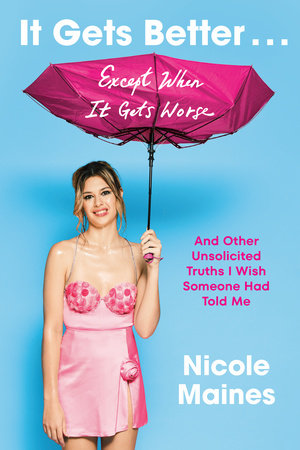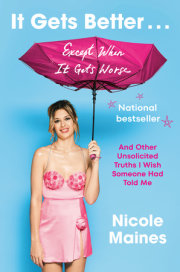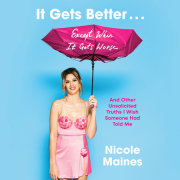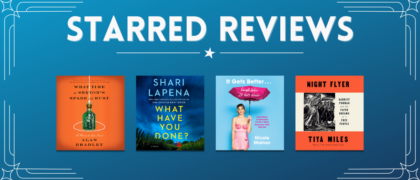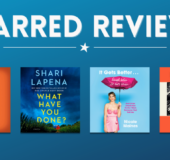1. I came out as trans when I was three years old. Obviously I didn’t
come out come out, but I told my parents that I was a girl with the few words I knew. It would be an understatement to say that this came as a surprise to my parents, and not a particularly welcome one as, up until this point, they believed me to be their son. Our whole collective coming-to-terms process was documented expertly and minutely by the journalist Amy Ellis Nutt in her 2015 book
Becoming Nicole: The Transformation of an American Family, which is basically what I just told you, only italicized.
The story in
Becoming Nicole is warm. It’s almost like a fairy tale. I guess it hasn’t always been easy for people to understand that
Becoming Nicole was never a book about me, really, or even my transition. It is about how my transition was an opportunity for my family and community to change and challenge the gendered expectations society places on people and our belief in gendered social norms. Sure, they put my face on the cover, but that was definitely not
my idea. It’s more a book about my parents learning how to raise a trans child, especially my dad, who was cast as having the story’s “biggest transformation of all.” The book is more about
Figuring Out How to Raise a Nicole than it is about actually
Becoming-ing me like the title says, which is fine! I’m incredibly grateful that our story reached so many people, but I still worry that it’s not enough, that even the good people, the ones who cared, could close the book and feel that they’d done their part for trans rights by virtue of engaging with my story and my family, and be done with it.
This time, though, I’m not trying to give the Straights™ another Cinderella story about a little trans kid who grew up to be a civil rights crusading princess superhero on TV and how everyone lived happily ever after. If you’re holding this book, buckle up. Because as in any good fairy tale, you’re going to have the Disney version of the story (you’ll soon learn how deep my love for Disney goes) and the more harrowing, thornier (that means shitty), Brothers Grimm version of things.
Despite the fact that I would be an incredible casting choice for a role as a live-action Disney princess and they should totally call me about that, this is the thornier kind of story.
2. The year was 1997. Two babies were wrapped in blue blankets. It was noonish (12:21 p.m. for all you astrology girlies). We made Mom miss lunch. I entered this world as a pushy bitch in Gloversville, New York. I know who I am. I know what I want. And I’m going to tell you all about it. Prepare yourselves!
My twin brother, Jonas, was actually supposed to be born first. But at the very last second I said, “No! I know how to make an entrance!” And I body-checked him out of the way. You read that right: Even when it came to being born, I, an actual fetus, pushed another fetus out of my way to get the job done. Did I care? Nope; I was crowning! Obviously, I don’t remember it, but it sounds just like me. Anyway, this is to say that I have always been a very assertive person. Jonas was so shook he stayed in the womb for another ten minutes stewing about it, shell-shocked.
We were born identical twin boys, and I think my parents probably expected a BOGO-type experience. I get it; most people assume that being identical twins means that we’re more or less the same, but
identical is just the scientific term. When you think about it, the reality is actually the opposite. Maybe we were the same person at the inconceivable moment of conception, but then very soon afterward—as our very first order of business as a blastula—we became TWO DIFFERENT PEOPLE. And we continued that way ex-utero as well, finding our own ways to express our individuality.
By all accounts, Jonas was a little sweetie pie of a baby, and I, I’ll repeat, was a very assertive person—otherwise known as a bitch, defined in the book
Drag Race by legend herself Latrice Royale as “Being In Total Control of Herself.”
No, for real, I was very sweet and adorable, too, but I was a little tiny person with a pretty big job to do: I had to figure out how to tell everyone in my life that, somehow, they had gotten the wrong impression, and I was not, in fact, the little boy they thought I was. So while toddler Jonas was blissfully preoccupied with the ongoing Clone Wars in a galaxy far, far away, I was more often found in front of the TV with Mom and Barbie, practicing with our Pilates videos, or gazing moodily into the mirror at bath time, anxious about what I saw there.
So let’s just make something crystal clear: Twins are different people. Sometimes they’re even different genders from each other. Personally, I don’t think there’s anything odd about it at all, but biological essentialist arguments about gender are a powerful drug! If you find any biological essentialist arguments about gender just lying around, be sure not to get too close. We know this now, but back in the twentieth century, they were rampant and getting passed around everywhere, like a hastily rolled joint behind the bleachers. I quickly found out that it would simply blow some people’s minds that someone (me, hi, I’m someone) could have a different gender identity than their identical sibling, and they’d proceed to lose their shit about it.
Copyright © 2024 by Nicole Maines. All rights reserved. No part of this excerpt may be reproduced or reprinted without permission in writing from the publisher.

